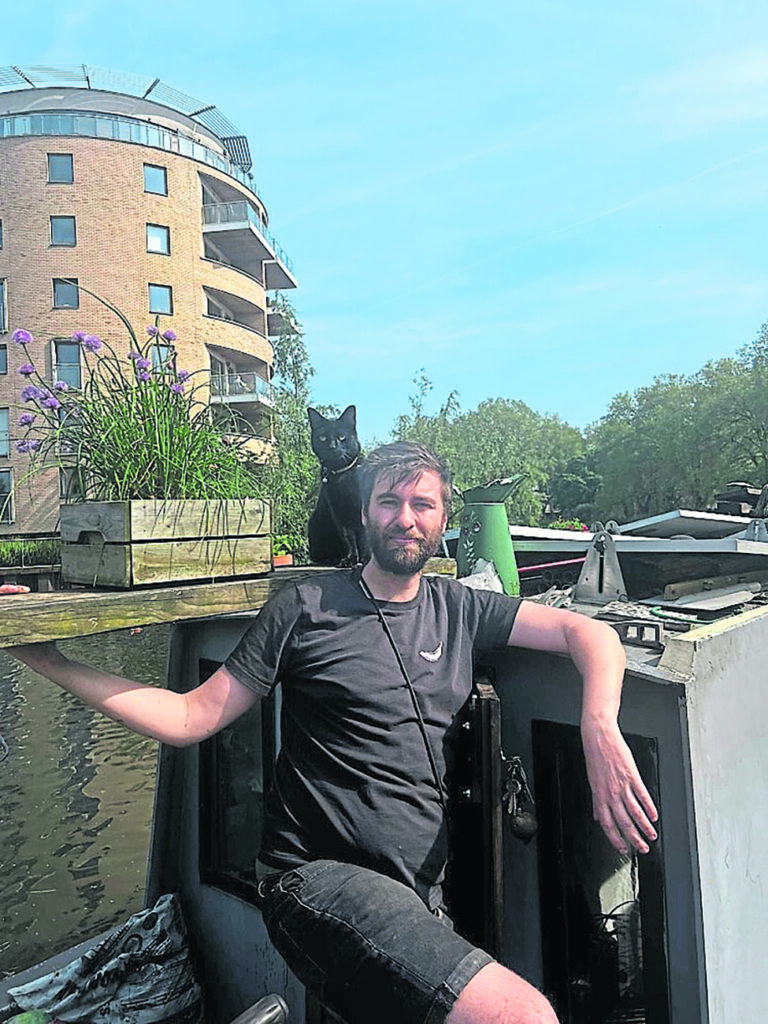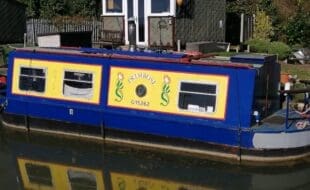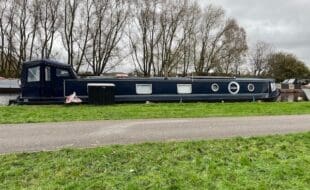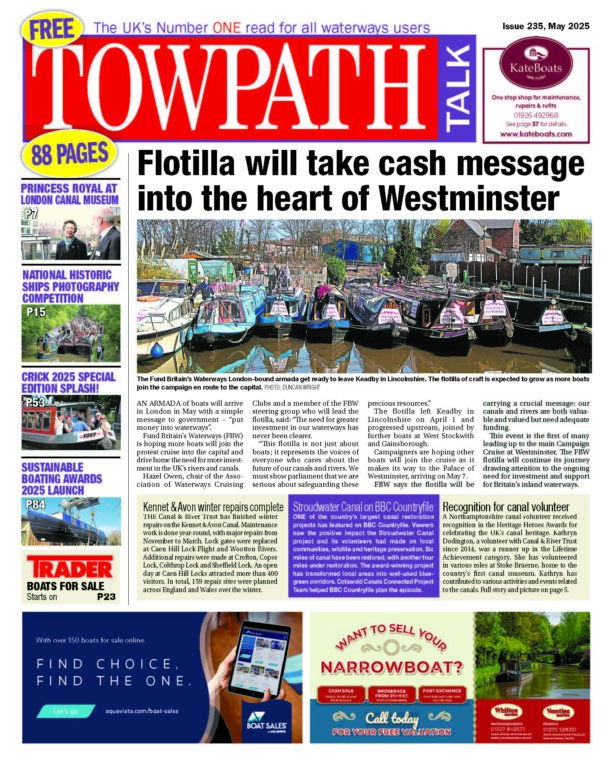Tim Greenfield reports…
HUNDREDS of boaters are missing out on access to vital services such as healthcare, education and banks.
Waterway users say many central and local government agencies just aren’t able to deal with people who don’t have a permanent address – leaving many falling through the cracks and suffering in the process.
Boaters say they are feeling penalised for their lifestyle choices and those with health conditions suffer the most, with one claiming the current system nearly cost her life.
The stories were uncovered as almost 10,000 boaters took part in the Canal and River Trust’s first-ever census, with the results revealing the stark and difficult reality of living on the water for some.
The lack of a fixed address means boaters often struggle to register to vote, apply for school places, find a doctors’ practice, access other aspects of healthcare and open a bank account – all of which are things that people with permanent addresses take for granted.
With many people taking to the water to escape the high cost of living, ensuring they can get help with benefits and social services is even more important. But many are simply slipping through the net.
One continuous cruiser, who wished to remain anonymous, ended up needing life-saving emergency surgery after problems with having a virtual address led to her being taken off her GP’s books.
“The system is ridiculous and it nearly cost me life,” she said.
“It was hopeless and I felt like I was dying. I couldn’t even temporarily sign up with another doctor because you need to have a regular GP to then have a temporary one in a different area.
“It’s a stupid system that requires you to have an address within the practice area of the GP. So, because I don’t lie on forms and say I live somewhere that I don’t, like many continuous cruisers who use family addresses, then for the NHS I don’t exist and they can keep throwing me off their books without a care until I’m in the emergency room literally dying.”
Matthew Symonds, head of customer service support at Canal and River Trust, said: “We hope local and national government will listen to these voices and reduce these barriers – that’s all we are asking for.
“If you don’t have a permanent address, that is a major barrier.
“The Boater Census has provided us with hard evidence of the challenges boaters are facing. However, as the high cost of living continues to affect those across society, we have seen a rise in issues faced by people who have chosen or been forced by circumstance to live on boats, with numbers of continuous cruising boats increasing by 5% in the past year. We don’t want this community to fall through the net of the support and services to which they are entitled.”
Over 9500 boaters took part in the census, a mixture of continuous cruisers and those with permanent residential moorings. They represent a third of current boat licence holders. They highlighted a wide range of issues that affect their quality of life.
A quarter said they had difficulties accessing healthcare and nearly half experienced issues claiming benefits.
The Canal and River Trust has vowed to help boaters where it can and has welfare officers who reach out to those who need help. It has called on government, local councils and other agencies to step up and ensure boaters aren’t forgotten.
The trust’s range of support options for boaters, including long-term adjustments made under the Equalities Act and shorter-term solutions, are also highlighted. The trust’s welfare team is there to help boaters, including linking them with local authorities, Citizens Advice, the Waterways Chaplains and local charities so they can access the support and benefits to which they are entitled.
Mr Symonds added: “While our charity provides guidance and a range of support options for those who are struggling, we need the organisations who provide the services – national government, local authorities, doctors’ surgeries, financial service providers, and government departments – to take steps to address the gaps in their provision.”
The survey also revealed other issues faced by boaters, such as health correspondence, which is sent by letter and not electronically, not being able to provide an address for a bank account, accessing education and work, and poor internet connections making basic communication tricky.
Despite the gloom, there are some bright spots with innovative local authorities and agencies working with the Canal and River Trust to ensure boaters are included in their planning and policies.
The trust and West Northamptonshire Council (WNC) have worked with the boating community and local charities to set up foodbank sessions and other forms of support, including health drop-ins and social events. There is also a library, community buses for health appointments and shopping trips for boaters without transport.
In Cheshire there is a Waterway Chaplaincy which, working with Cheshire Healthwatch, has identified health needs which they will try to support with the help from other agencies.
However, the trust says more still needs to be done and has called for boaters to be included in local health strategies, rural initiatives, social services outreach, help for carers and access to energy support.
The census was undertaken so the Canal and River Trust could understand better the needs of water users, who are bracketed with other non-traditional residents such as those who live in mobile homes in official surveys.
“We wanted to understand better the challenges they faced,” said Mr Symonds. “It was a very big sample, and we think it is a fair reflection of the boating community.”
Case study: “This lifestyle is daunting because you need to be resilient”
FOR nurse Alain Gough-Olaya, living on the water hasn’t brought the freedom many people crave, in fact, it has brought a host of issues that can make life extremely hard.

A continuous cruiser, Mr Gough-Olaya, 38, says he can only work in the community and only cruise in the London area, due to the restrictions of public transport and other infrastructure. In fact, he is moving to another job, further into the capital due to the problems he has encountered.
Accessing transport, poor internet connections, power issues in the winter and having to move every fortnight are some of the hurdles he and his partner, SJ, have to overcome.
“My current job gives me a degree of flexibility as I can work from home one day a week, but if I had a normal job on a ward, I wouldn’t be able to do this,” he said. “That is part of the reason I work so far away.”
Mr Gough-Olaya, a NHS mental health nurse, and his partner cruise the River Lea in Hertfordshire, often spending time at Broxbourne. This means his closest commute is 40 minutes and the furthest one hour and 40 minutes, which costs £18 a day. In addition, they must factor in moving once every two weeks – setting aside a full day in order to do this.
“When we moor at Redbridge, East London I cycle, but otherwise I use public transport. I have to be very organised, making sure we moor near public transport – unfortunately the only city in the UK where this is feasible is London.”
The pair have been living aboard their narrowboat, Artemisia, for nine years. Living on the land is something they can’t consider because of the cost of buying a house or renting.
Although he has an understanding employer, Mr Gough-Olaya is having to move to a new job in Hackney, London, to make his work more accessible – a move which has brought other issues. “Doing identity checks is very hard when you don’t have a permanent address.”
The winter months bring their problems as the pair must also ensure proximity to petrol stations, so they have fuel for the generators when solar power falls off. Add to that poor internet connections, and working from home becomes a real problem.
“I can imagine this sort of lifestyle would be daunting, you have to have quite a dramatic change in lifestyle, and you have to be very resilient.”





